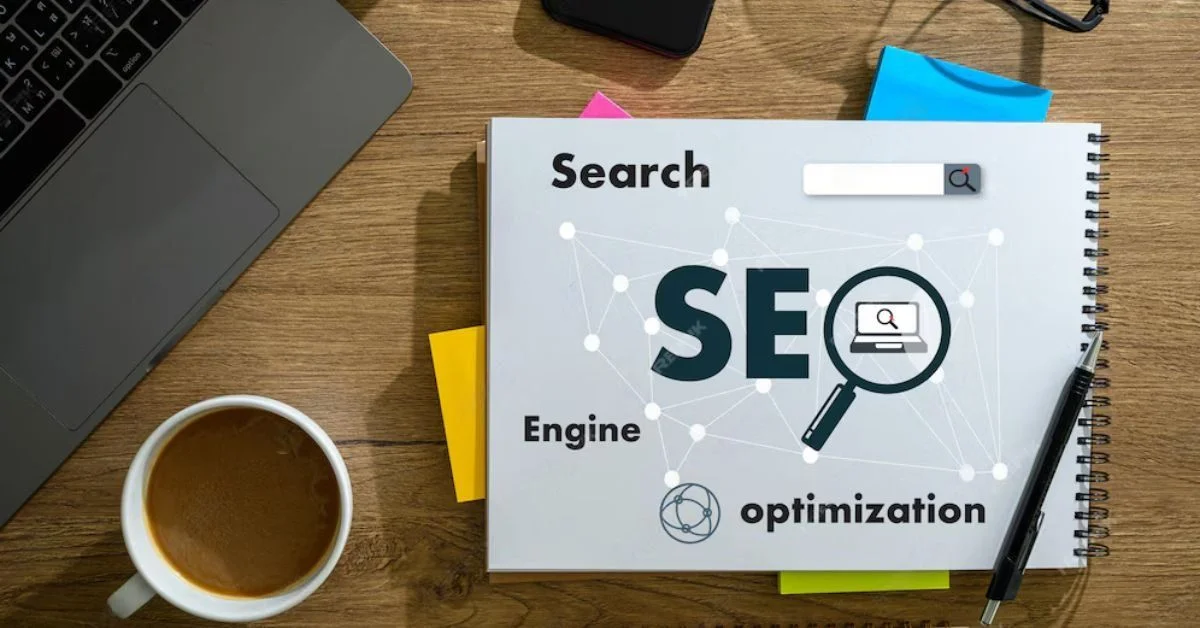SEO
Google Ads vs. Organic Search: When and Why to Invest in Paid Search

In today’s competitive digital landscape, every business aims to attract the right audience. With millions of potential customers searching online, ensuring visibility is essential. Two primary strategies dominate this space: organic search and Google Ads. While organic search builds your presence over time, Google Ads offers instant visibility. Understanding when and why to invest in paid search depends on your business goals, budget, and market conditions. The debate isn’t about choosing one over the other but rather finding the right balance. This article breaks down key considerations for investing in paid search, helping you make informed decisions to maximize your marketing efforts and ROI.
1. Organic Search: The Long-Term Strategy
Organic search refers to unpaid visibility in search engine results. It’s a long-term investment that hinges on creating high-quality content, optimizing for keywords, and earning backlinks. While it requires time and consistent effort, the benefits can be lasting and cost-effective. For example, a well-optimized blog post may rank for years, generating traffic without recurring expenses.
However, organic search isn’t without challenges. It takes time to build authority, especially in competitive niches. Businesses with immediate goals may find the wait unsustainable. Moreover, search engine algorithm changes can impact rankings, making it important to stay updated with SEO trends.
Organic search works best for businesses with long-term goals and limited budgets, but it’s not always the ideal choice for immediate results.
2. Paid Search: Immediate Visibility with Google Ads
Paid search allows businesses to appear at the top of search results almost instantly. Using Google Ads, you bid on specific keywords, ensuring your website gets seen by users actively searching for related products or services. This model guarantees targeted exposure and measurable outcomes.
Google Ads management plays a critical role in maximizing paid search effectiveness. From selecting the right keywords to refining ad copy, efficient management ensures you get the best return on investment. Additionally, tools like audience targeting and A/B testing can help optimize campaigns for better results. Paid search benefits businesses launching new products, running promotions, or operating in highly competitive markets where organic visibility is tough to achieve.
3. Cost Considerations: Comparing Paid and Organic Efforts
Budget is often the deciding factor in choosing between paid and organic strategies. Organic search requires upfront investment in SEO tools, content creation, and technical optimization. While these costs aren’t recurring, the results take time to materialize.
On the other hand, Google Ads demands ongoing financial commitment. Costs depend on the competitiveness of your keywords and your industry. Businesses with a higher customer lifetime value (CLV) can justify larger ad budgets as they reap the benefits of each conversion.
The key is to evaluate your goals. If immediate traffic and measurable results are critical, allocate more to paid search. For sustainable growth, balance this with an organic strategy.
4. Targeting: The Precision of Google Ads
Google Ads offers unparalleled precision when targeting your audience. You can specify criteria like location, age, interests, and even browsing habits. This level of customization ensures your ads reach the most relevant users.
Organic search, while powerful, doesn’t offer this control. Rankings depend on factors like keyword relevance and domain authority, which are broader and less direct. Businesses targeting niche markets or specific demographics often benefit more from paid search.
Paid search also supports remarketing, allowing you to reconnect with users who’ve interacted with your site before. These tailored strategies make Google Ads a great choice for campaigns with specific audience goals.
5. Measuring Results: Tracking Performance and ROI
Both organic search and Google Ads come with tracking tools, but the level of detail differs. Organic search relies on tools like Google Analytics to monitor traffic, bounce rates, and keyword rankings. These insights help refine your SEO strategy over time.
With Google Ads, performance metrics are immediate and precise. You can track impressions, click-through rates, conversion rates, and cost-per-click for each campaign. This level of transparency allows businesses to adjust campaigns in real time, ensuring optimal results.
Paid search’s measurable ROI makes it appealing for businesses that prioritize accountability and data-driven decisions. By contrast, organic efforts require patience and broader metrics for evaluation, which can make ROI harder to quantify initially.
6. Brand Awareness: Boosting Visibility Through Paid Ads
For businesses looking to make a mark quickly, paid search is an excellent tool to increase brand awareness. Google Ads ensures your brand appears in front of users actively searching for relevant products or services. Even if users don’t immediately convert, repeated exposure can reinforce your brand’s presence in their minds.
Unlike organic search, where ranking high requires consistent efforts and time, paid search guarantees placement above organic results, putting your business front and center. This can be particularly useful for startups or companies launching new offerings.
While organic search contributes to brand awareness over time, paid search accelerates this process, helping businesses build recognition in a competitive market.
7. Competitive Advantage: Outperforming Rivals
Paid search can help you outperform competitors by targeting their audience directly. With tools like competitive analysis in Google Ads, you can identify which keywords your rivals are bidding on and craft strategies to capture that traffic.
For instance, bidding on branded keywords associated with competitors can direct users searching for them to your site. While organic search also offers opportunities to compete, it lacks the immediacy of paid search strategies.
Additionally, paid search allows businesses to dominate high-value search terms that are difficult to rank for organically. By investing in Google Ads, you secure top placement, driving traffic and conversions even in saturated markets.
8. Balancing Both: Creating a Holistic Marketing Strategy
Choosing between organic and paid search doesn’t have to be an either-or decision. A balanced approach often yields the best results, combining the strengths of both strategies.
For instance, businesses can use Google Ads to drive immediate traffic and test high-performing keywords. Once identified, these keywords can inform long-term SEO efforts, ensuring that your organic strategy aligns with proven terms.
Meanwhile, organic efforts like blog posts or resource pages can support paid campaigns by improving Quality Scores in Google Ads, reducing cost-per-click. This synergy creates a comprehensive marketing approach, maximizing your online presence and ROI.
Deciding between Google Ads and organic search depends on your goals, budget, and timeline. Organic search builds a foundation for long-term visibility, while Google Ads delivers immediate results and measurable ROI. For businesses serious about online success, combining both strategies often provides the best outcomes.
With effective Google Ads management and a commitment to SEO, you can drive traffic, increase conversions, and outperform competitors. The key lies in understanding the unique benefits of each strategy and aligning them with your business objectives. By doing so, you ensure sustained growth and success in an ever-competitive digital landscape.
SEO
Mastering Content Creation: How AI Humanizer Pro Helps You Write Like a Human

In today’s fast-paced digital world, creating high-quality content quickly is essential. However, even with advanced AI tools available, writing that truly resonates with human readers can be a challenge. AI-generated content often lacks the nuance, tone, and flow that make it easy for readers to engage with. That’s where AI Humanizer Pro comes into play. This powerful, free tool helps transform robotic AI writing into content that feels natural, polished, and human-like.
AI Humanizer Pro is a simple yet effective solution designed to humanize short texts, emails, and paragraphs. If you’ve ever struggled with AI-generated content that feels stiff or unnatural, you can now use Humanizer Pro to enhance it. The tool is straightforward to use, offering fast results without any need for complex steps. It helps convert dry, robotic text into content that sounds professional and approachable. This is particularly useful for those who need to improve their AI content quickly, such as in email campaigns or social media posts.
Why Choose AI Humanizer Pro for Your Content Needs
AI Humanizer Pro stands out because of its unique ability to humanize short-form AI content. It is best suited for those looking to improve text in a hurry, such as emails, social media posts, or small blog entries. The tool’s design allows for rapid, high-quality content adjustments in no time.
One of the main advantages of AI Humanizer Pro is its simplicity. Unlike many complex content tools that require deep knowledge or hours of training, AI Humanizer Pro is easy for anyone to use. There are no complicated settings to adjust, and the results are immediate, which makes it perfect for quick fixes. For those who need to edit AI-generated content on a daily basis, AI Humanizer Pro offers an efficient and cost-effective solution that delivers quick, readable results.
AI Humanizer Pro is completely free, with a daily word limit of up to 5,000 words. While this may not be suitable for large-scale projects, it works well for businesses, marketers, or writers who focus on smaller pieces of content. It is an ideal tool for anyone needing fast content humanization on a regular basis, such as email campaigns or short blog posts.
How Does AI Humanizer Pro Work?
The process is simple, and it requires no advanced technical knowledge. Here’s a step-by-step guide to using AI Humanizer Pro:
- Input Your Text: Copy and paste the AI-generated text into the tool’s input box.
- Click the Humanize Button: Once you’ve pasted your text, click the “humanize” button to let AI Humanizer Pro do its magic.
- Download or Use: After the text is humanized, you can either download it or directly use it on your site or platform.
It’s that simple! In a matter of seconds, your robotic content becomes more conversational and engaging. AI Humanizer Pro doesn’t just change a few words; it alters the structure, tone, and flow of the content to make it more readable.
The tool is tailored to humanize short texts, but it’s effective for small adjustments. If you’re looking to create lengthy articles or conduct complex paraphrasing, AI Humanizer Pro may not be sufficient. Its strength lies in making quick improvements to smaller pieces of writing.
Benefits of Using AI Humanizer Pro
- Improved Readability: AI Humanizer Pro makes AI-generated content more readable, ensuring it sounds natural and engaging for your audience.
- Free and Accessible: The tool is completely free to use with daily word limits, making it accessible for everyone.
- Simple and Quick: With no learning curve, AI Humanizer Pro provides immediate results, perfect for busy content creators.
- Perfect for Short Texts: Whether you need to humanize emails, social media posts, or short articles, this tool is a perfect match.
Who Should Use AI Humanizer Pro?
AI Humanizer Pro is designed for individuals and businesses who need quick and effective content improvements. It is particularly useful for:
- Marketers: Marketers who need to improve email campaigns, social media posts, and product descriptions.
- Content Creators: Bloggers or social media influencers who work with AI-generated content regularly.
- Small Businesses: Businesses that need quick edits for their website copy or product descriptions.
- Freelancers: Freelance writers who want to streamline their workflow and enhance their text with minimal effort.
This tool is designed for those who work with short content. If you have long articles or complex content that requires detailed adjustments, you might need a more advanced tool.
Limitations of AI Humanizer Pro
While AI Humanizer Pro is a great tool for quick improvements, it does have its limitations. Here are a few to consider:
- Daily Word Limits: The tool allows for up to 5,000 words per day, which might not be enough for larger projects.
- Lack of Advanced Features: AI Humanizer Pro doesn’t offer features like summarization or deep paraphrasing, limiting its use for specific content needs.
- Short Text Focus: It’s best suited for short pieces of content, such as emails, short paragraphs, and social media posts.
Conclusion
In conclusion, AI Humanizer Pro is a straightforward, free tool that can greatly enhance short AI-generated content. If you’re looking to use Humanizer Pro to make your text sound more natural and polished, it’s a quick and simple solution for improving readability. While it may not replace more advanced content tools, it provides an excellent way to humanize smaller text, making it a valuable asset for anyone needing high-quality content quickly.
AI Humanizer Pro’s focus on simplicity and ease of use makes it an ideal tool for marketers, content creators, and businesses that rely on AI-generated text. With just a few clicks, you can transform robotic writing into polished, human-like content.
SEO
Understanding Backlinks: A Comprehensive Guide for Enhancing Your SEO

Backlinks are fundamental to SEO success, serving as endorsements from one website to another. Recognized by search engines as votes of confidence, quality backlinks can significantly improve a site’s visibility and ranking.
What Are Backlinks?
Backlinks, also known as inbound or incoming links, occur when one website links to another. These are crucial for SEO because they signal to search engines that others vouch for your content. This endorsement can boost your site’s credibility and, ultimately, its rank in search engine results pages (SERPs).
The Importance of Quality Backlinks
Not all backlinks are created equal. The best backlinks have several key characteristics:
- Authority: Links from reputable, high-authority sites provide more value.
- Relevance: Links from sites within the same industry or niche are more beneficial.
- Dofollow Status: Dofollow links allow search engines to follow them and pass on link equity, unlike nofollow links, which do not pass on link equity.
- Anchor Text: The clickable text part of a hyperlink. Ideally, anchor text should be relevant to the linked page.
- Placement: Links placed within the main body of a webpage are generally more powerful than those in the footer or sidebar.
How to Acquire Quality Backlinks
Are you looking to Backlinks kaufen? Then you have come to the right place.
- Create Compelling Content: Produce high-quality content that addresses the needs and interests of your target audience. This includes in-depth articles, infographics, videos, and more that provide value and encourage other sites to link back to your content naturally.
- Guest Blogging: Writing articles for other relevant blogs can provide backlinks and is an effective way to reach new audiences.
- Broken Link Building: This involves finding broken links on other websites and suggesting your content as a replacement.
- Skyscraper Technique: Identify popular content with lots of backlinks, create something better, and then reach out to those who linked to the original piece.
- Engage in Community Discussions: Participate in forums and comment sections where you can provide valuable insights and link back to relevant content on your site.
Avoiding Backlink Pitfalls
- Buying Backlinks: This can lead to severe penalties from Google.
- Irrelevant Links: Links from unrelated sites may not contribute value and can sometimes harm your site’s standing.
- Over-Optimization: Excessive use of keyword-rich anchor text can look spammy and lead to penalties.
Tools and Strategies for Effective Backlink Management
- Use Tools like Ahrefs or Google Search Console: These tools can help you track your backlinks and the quality of links.
- Regular Audits: Periodically check your link profile for any low-quality or spammy links that could harm your ranking.
- Focus on Organic Growth: Encourage natural link development through networking and collaborative opportunities with authoritative sites in your industry.
Conclusion
Backlinks remain a cornerstone of successful SEO strategies. By focusing on quality over quantity, engaging in ethical link-building practices, and continuously creating valuable content, websites can improve their SEO performance significantly. Remember, a good backlink profile helps not only in enhancing your SEO but also in establishing your site as a credible and authoritative source in your industry.
SEO
Conquering the Kenyan Web: Best Practices for SEO in Nairobi

Nairobi’s digital landscape is a bustling marketplace where businesses of all sizes vie for online visibility. Search Engine Optimization in Nairobi (SEO) is the key to unlocking organic traffic and attracting potential customers through search engines like Google. However, a one-size-fits-all SEO strategy won’t suffice in the unique Kenyan market. This article explores best practices specifically tailored to help Nairobi businesses dominate local search results.
Keyword Research with a Kenyan Twist
Keyword research is the cornerstone of any successful SEO campaign. Here’s how a digital marketing agency in Nairobi can tailor its SEO services for the Nairobi market:
- Localize Your Keywords: Go beyond generic keywords and identify long-tail keywords with local relevance. Kenyans might search for “best restaurants Nairobi CBD” instead of just “best restaurants.”
- Consider Swahili Keywords: Swahili is a widely spoken language in Kenya. Incorporate Swahili keywords into your content strategy to reach a broader audience (e.g., “hoteli za kifahari Nairobi” for luxury hotels).
- Utilize Local Search Tools: Leverage Google Keyword Planner and local SEO tools to identify popular search terms with high search volume and low competition specific to Nairobi.
On-Page Optimization: Optimizing Your Website for Local Success
Once you have your keywords, optimize your website to improve search engine ranking and user experience:
- Target Keywords in Strategic Locations: Integrate relevant keywords naturally into your website’s title tags, Meta descriptions, headers (H1, H2, etc.), and throughout the content.
- Location, Location, Location: Optimize your Google My Business listing with accurate business information, high-quality photos, and positive customer reviews. Encourage satisfied clients to leave reviews to boost local SEO.
- Mobile-First Approach: A significant portion of Nairobi’s online population accesses the internet via smartphones. Ensure your website offers a seamless user experience for mobile users with fast loading speed and responsive design.
- Content is King (and Queen): Create high-quality, informative content that resonates with your local target audience. Address their specific needs and challenges, showcase local success stories, and highlight your expertise in the Kenyan market.
- Optimize Images with Local Context: Include relevant keywords in image alt tags and use high-quality visuals that reflect the Kenyan culture and local landscape.
Building Backlinks: Earning Trust in the Kenyan Online Sphere
Backlinks from reputable websites act as votes of confidence for your website in the eyes of search engines. Here’s how to build trust and secure high-quality backlinks in Nairobi:
- Collaborate with Local Businesses: Partner with complementary businesses in Nairobi for guest blogging opportunities or co-creating informative content that benefits both audiences.
- Target Local Online Publications: Reach out to Kenyan online publications, blogs, and directories relevant to your industry and explore guest blogging opportunities to earn backlinks from high-authority websites.
- Engage on Social Media: Actively participate in relevant online communities and social media groups in Nairobi. Share valuable content, engage in discussions, and build relationships with influencers who might be willing to link back to your website.
- Focus on Quality over Quantity: Prioritize earning backlinks from high-quality, relevant websites in the Kenyan online space. Avoid low-quality link farms and schemes that can negatively impact your SEO efforts.
Technical SEO: Ensuring a Smooth User Experience for All
Technical SEO ensures your website functions flawlessly and is easily crawled by search engines:
- Website Speed Optimization: Website loading speed is a crucial ranking factor. Use website speed testing tools and implement techniques to improve website speed for a smooth user experience.
- Structured Data Implementation: Utilize structured data markup to provide search engines with additional information about your website content, potentially improving search result snippets and attracting more clicks.
- Mobile Responsiveness: Ensure your website adapts and displays correctly across all devices, especially smartphones, to cater to the mobile-first user base in Nairobi.
- Regular Website Audits: Conduct regular technical SEO audits to identify any crawl errors, broken links, or technical issues that might hinder your website’s ranking.
Staying Ahead of the Curve: Embracing Local Trends and Google Updates
The SEO landscape is constantly evolving. Here’s how to stay competitive in the Nairobi market:
- Monitor Google Algorithm Updates: Stay informed about the latest Google algorithm updates and adjust your SEO strategy accordingly. Focus on white-hat SEO techniques and user experience to ensure long-term success.
- Embrace Voice Search Optimization: Voice search is becoming increasingly popular. Optimize your website content with natural language and long-tail keywords to improve your ranking for voice search queries.
- Focus on Local Events and Trends: Stay updated on local events, trends, and news.

 HOME IMPROVEMENT11 months ago
HOME IMPROVEMENT11 months agoThe Do’s and Don’ts of Renting Rubbish Bins for Your Next Renovation

 BUSINESS12 months ago
BUSINESS12 months agoExploring the Benefits of Commercial Printing

 BUSINESS12 months ago
BUSINESS12 months agoBrand Visibility with Imprint Now and Custom Poly Mailers

 HEALTH8 months ago
HEALTH8 months agoThe Surprising Benefits of Weight Loss Peptides You Need to Know

 HEALTH7 months ago
HEALTH7 months agoYour Guide to Shedding Pounds in the Digital Age

 TECHNOLOGY10 months ago
TECHNOLOGY10 months agoDizipal 608: The Tech Revolution Redefined

 HOME IMPROVEMENT7 months ago
HOME IMPROVEMENT7 months agoGet Your Grout to Gleam With These Easy-To-Follow Tips

 HEALTH11 months ago
HEALTH11 months agoHappy Hippo Kratom Reviews: Read Before You Buy!












